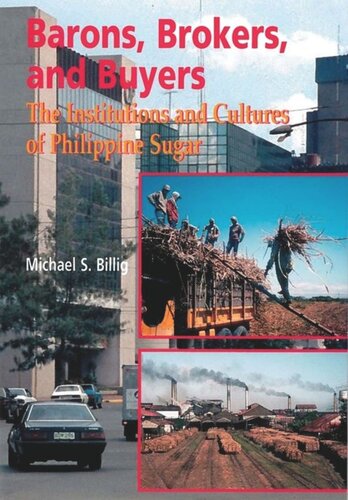

Most ebook files are in PDF format, so you can easily read them using various software such as Foxit Reader or directly on the Google Chrome browser.
Some ebook files are released by publishers in other formats such as .awz, .mobi, .epub, .fb2, etc. You may need to install specific software to read these formats on mobile/PC, such as Calibre.
Please read the tutorial at this link: https://ebookbell.com/faq
We offer FREE conversion to the popular formats you request; however, this may take some time. Therefore, right after payment, please email us, and we will try to provide the service as quickly as possible.
For some exceptional file formats or broken links (if any), please refrain from opening any disputes. Instead, email us first, and we will try to assist within a maximum of 6 hours.
EbookBell Team

4.0
26 reviewsThis innovative ethnography takes a new approach to the study of Philippine sugar. For much of the late colonial history of the Philippines, sugar was its most lucrative export, the biggest employer, and the greatest source of political influence. The so-called "Sugar Barons"--wealthy hacendero planters located mainly in Central Luzon and on the Visayan island of Negros--gained the reputation as kingmakers and became noted for their lavish lifestyles and the quasi-feudal nature of their estates. But Philippine sugar gradually declined into obsolescence; today it is regarded as a "sunset industry" that can barely satisfy domestic demand. While planters continue to think of themselves as wielding considerable power and influence, they are more often seen as vestiges of a bygone era.
Michael Billig examines sugar's decline within both the dynamic context of contemporary Philippine society and the global context of the international sugar market. His multi-sited ethnographic analysis focuses mainly on conflicts among the various elite sectors (planters, millers, traders, commercial buyers, politicians) and concludes that the most salient political, economic, and cultural trend in the Philippines today is the decline of rural, agrarian elite power and the rise of urban industrial, commercial, and financial power. His reflections on his relationships with informants in the midst of the politically charged atmosphere that surrounds the sugar industry provide a candid look at the role of the observer who, try as he might to remain impartial, finds himself swept into the vortex of policy debates and power plays.